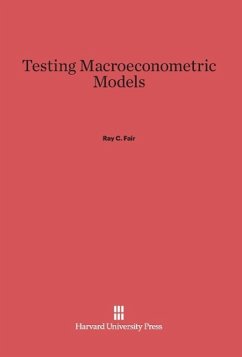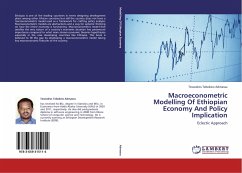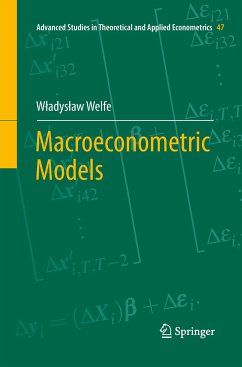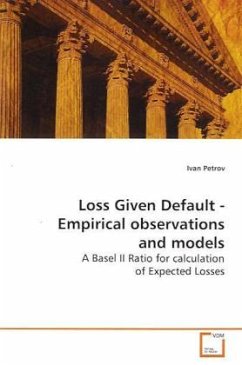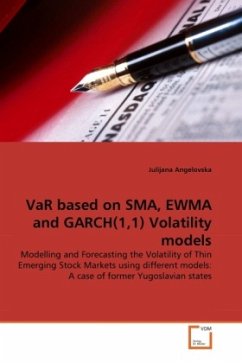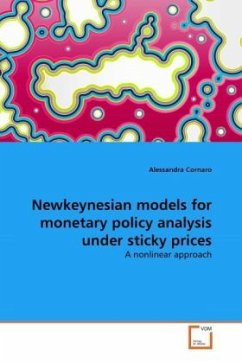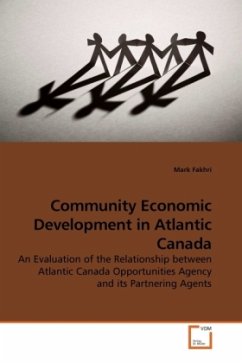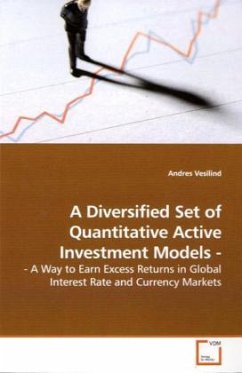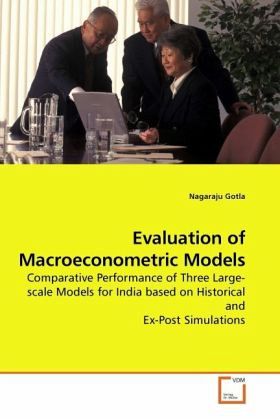
Evaluation of Macroeconometric Models
Comparative Performance of Three Large-scale Models for India based on Historical and Ex-Post Simulations
Versandkostenfrei!
Versandfertig in 6-10 Tagen
52,99 €
inkl. MwSt.

PAYBACK Punkte
26 °P sammeln!
Large-scale macroeconometric modeling has been an avid activity for economists for a long time in the academic, business and policy circles. Economists believe that macromodelling is the best way of understanding the economy-wide causal networks of macro variables. However, modelling large economies was never been easy considering competing theories and inadequate model selection methods. As a result, models based on different theoretical paradigms, often with conflicting implications co-exist without being clearly preferred from one to the other. In this context, empirical evaluation of macro...
Large-scale macroeconometric modeling has been an avid activity for economists for a long time in the academic, business and policy circles. Economists believe that macromodelling is the best way of understanding the economy-wide causal networks of macro variables. However, modelling large economies was never been easy considering competing theories and inadequate model selection methods. As a result, models based on different theoretical paradigms, often with conflicting implications co-exist without being clearly preferred from one to the other. In this context, empirical evaluation of macro econometric models based on their predictive power assumes significance as a method of model selection. The present book is one such exercise of model evaluation where different measures of model performance are employed. The work done in this book pertains to three well-known macro models for India. A main methodological innovation of this work is the application of R C Fair s method of model comparison using FP program available at http://fairmodel.econ.yale.edu/fp/fp.htm



